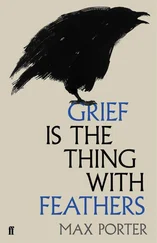Back in Onondaga County, Will would have set his plumping mill up where it could catch the spray off the waterwheel that turned his father’s gristmill. As this was New York City, he set it up on Gob’s roof between two blocks of wood, and poured the water himself from a pitcher so big even he had to lift it with both hands.
Will filled the box. The weight of the water lifted the hammer higher and higher, until the angle was such that the water ran out of the open-backed box. Now the hammer fell with a dull thud against the snow-covered roof. It was hardly a glorious sound, but Will felt a glorious sort of joy when it worked. He filled it repeatedly, watching it rise and fall for hours, till the eastern sky began to lighten and he could better appreciate the handiwork of his little mill. He’d neglected to put a pestle under it. It pounded no grain into flour. Instead it had broken a hole in the snow. Will considered the black hole and imagined Sam or Jolly climbing out of it, and no sooner had he done so but there they were, smiling at him and silently praising his little contrivance. It seemed barbaric compared to the complex and mysterious thing in the room below him, yet they bowed to it all the same. Will kept filling the box, so the plumping mill, with its up-and-down motion, seemed to return their courtesy.
Sam came and stood next him, and leaned his head closer and closer to Will’s until they were touching, and when they touched Will became lost in the pleasant memory of standing with Sam when they were little boys, gazing down into the well behind their house. The sun shone full down to the water that particular noon, and they could see the snakes there at the bottom, twisting and curling over each other. “Ain’t it grand, Will?” his brother had asked, and they’d stood watching until the shadows returned to cover the water once again.
In March of 1870, Will and Gob watched as the first caisson for the great bridge was launched into the East River from a Brooklyn shipyard. Gob was fascinated by the bridge. The late Mr. Roebling had been one of his heroes — he had a little picture of his bridge over the Ohio, which he sighed over sometimes as if it were the portrait of a pretty girl — and he had exchanged letters with the junior Roebling, who’d taken over the work of building the bridge after his father died. Gob would go on about the principal of the caissons and how it related to their own work. The caisson was a giant house that sank down as men dug out its floor, falling slowly through silt and mud and bedrock until it rested beneath the earth, an empty coffin upon which the great bridge would stand its foot. Gob spoke of a caisson of the spirit, built of discipline and grief and despair, in which he and Will would sink down until they rested in the lightless depths of their own souls. Inspiration and success would proceed from that deep place, Gob said. To Will, this made a vague sort of sense, and he nodded, the way he always did whenever Gob made such pronouncements. Will could understand, certainly, that their work was not the work of contented or happy men.
The caisson was fascinating, regardless of whatever philosophy Gob attached to it. It was so very large. Will knew its dimensions because Gob had repeated them endlessly — one hundred and sixty-eight feet long by one hundred and twenty feet wide, twenty feet high and three thousand tons heavy. Yet it seemed much larger, and the sloping walls gave it an Egyptian feel, as if it might be the base of a pyramid or a pedestal for a sphinx. The roof was covered with air pumps and tackle and various other pieces of machinery which Will could not recognize. “Isn’t it beautiful?” Gob asked. There was something childish in the way he hopped restlessly from foot to foot, waiting among the crowd of thousands for the launch, which went off without a hitch. The thing fell gracefully down to the water.
“There it goes,” Will said, holding his belly because he felt a lurch when the last block was knocked away and, when the thing started to fall, he had a feeling in his belly as if he, not the caisson, were falling, urged along by his fantastic mass into the gray river. Gob cheered with the rest of the crowd, shouting himself hoarse. Will cheered, too, very awkwardly at first, because he could not even remember the last time he had raised his voice this way. He emitted a few cracked, coughing yawps, and these seemed to clear the way in him for something smoother and more musical, a high, enthusiastic yodel that brought to mind the terrific hollering that the Rebs used to do. Will yelled louder and louder, until it was just he and Gob screaming in the now quiet crowd, until, like Gob, he’d used up his voice.
Will wrote in his casebook: He has had twenty-five to thirty discharges from his bowels in the past twenty-four hours. He was sitting at the bedside of a cholera patient, a fifteen-year-old boy whose fat cheeks made him look even younger than he was. Will put down his pencil and reached out to push the sleeping boy’s sweat-matted hair away from his eyes. He was sure that the boy would die.
That spring, Will had among others under his care a consumptive longshoreman, a cigar maker with intermittent fever, a clerk with pneumonia, a syphilitic sailor, a washerwoman with pleurisy, a shopgirl with plumbism from her makeup, a decayed actor who’d attempted suicide by hammering a nail into his head. All these patients died, despite Will’s sincere good intentions, his knowledge, his skill, and his careful watching. He’d sit with those who had no family to attend their death, thinking that in watching them take their last breaths some deeper knowledge would be revealed to him, something that might help in the construction of Gob’s machine. He learned the pattern: the limbs would cool, and the underside of the body would darken; patients would become sleepy and confused, often mistaking Will for someone they loved, reaching out their weakening hands to caress his face; their breathing would become shallow, and thick spit would pool in the back of their throat, so each breath, when it came, rasped and rattled; at the very end the breathing would cease and the heart would stop, and they would void their bladder and their bowels, a final gesture of disrespect for the world that they were leaving. He learned the pattern, but not the secret. He learned nothing exceptional, except how it was impossible that a person should live and breathe and be one moment the repository of an undying soul, and the next be just a body, just cooling flesh.
Will had gone to the second medical division at Bellevue. Gob had grown bored with the ambulance service, and quit at the end of ‘69. He had a gaggle of patients that he had inherited from Dr. Oetker, and, when he was not at work on the machine, he kept himself occupied with them. These wealthy men and women were never really sick, just obsessed with their bowels or the dimming luster of their hair. Will didn’t understand why Gob bothered with them.
The cholera boy died like the others, alone but for Will. Gob’s machine was already a success in one respect — working on it staved off Will’s fits. It blunted his empathy, as if work on the salvation of the sick and the dying made it easier for him to shake off their suffering. But when the work went poorly, as it had lately, the fits returned. He had one on account of the cholera boy. As he sank into oblivion, rattling and crying out with fear despite Will’s attempts to soothe him, Will sank down, too. His guts cramped up and he let out a moan, and as the boy died Will shook and drooled and bit his own cheek.
He woke with his head in the lap of a drunken nurse. He looked to where the boy lay in his bed, his mouth and eyes both slightly open.
“Have a little sip, sir,” the nurse said, bringing a flask to his lips. “It will help you to recover.” He sat up and stood away from her, scowling, taking the flask and telling her to get to work cleaning the boy’s body. Will looked around the room for his spirit, but it wasn’t there. To be haunted immediately would have been unprecedented. Will never saw them so fresh, but always a period of weeks would pass before they appeared to him, former patients who accused him with expressions of betrayal, as if they were furious he had not saved them. “It takes a little while,” Tennie told him, “for them to learn to come back. It is not easy for them.”
Читать дальше












